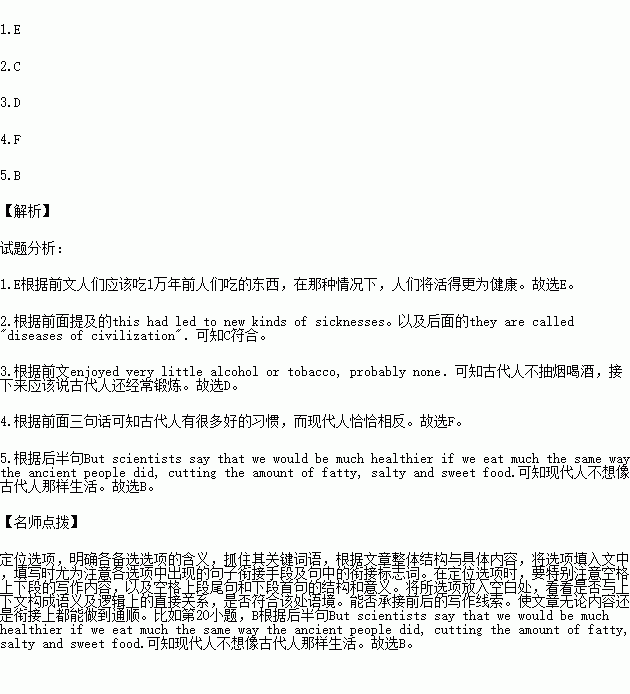题目内容
根据短文内容,从短文后的选项中选出能填入空白处的最佳选项。选项中有两项为多余选项。
Recently some American scientists have given a useful piece of advice to people in industrialized nations.They say people should eat more of the same kind of food eaten by humans living more than 10,000 years ago. 1.
The scientists say that the human life has changed greatly.Our bodies have not been able to deal with these changes in lifestyle and this had led to new kinds of sicknesses. 2. So they are called "diseases of civilization".Many cancers and diseases of the blood system are examples of such diseases.
Scientists noted that people in both the Old Stone Age and the New Stone Age enjoyed very little alcohol or tobacco, probably none. 3. However, a change in food is one of the main differences between life in ancient times and that of today.
Stone Age people hunted wild animals for their meat, which had much less fat than domestic ones.They ate a lot of fresh wild vegetables and fruits.They did not have milk or any other dairy products, and they made very little use of grains. 4. We eat six times more salt than our ancestors.We eat more sugar.We eat twice as much fat but only one third as much protein and much less vitamin C.
5. But scientists say that we would be much healthier if we eat much the same way the ancient people did, cutting the amount of fatty, salty and sweet food.
A.Modern people used to suffer from "diseases of civilization".
B.People today probably don't want to live like our ancestors.
C.These new sicknesses were not known in ancient times.
D.Ancient people also got lots of physical exercise.
E.In that case, they would live much healthier.
F.But today, we enjoy eating a lot of these.
G.Stone Age people lived a simple life.

